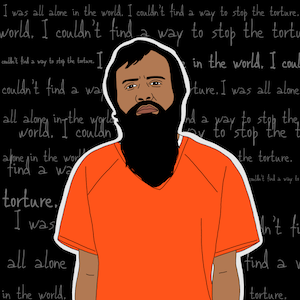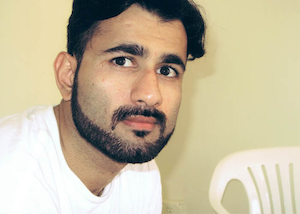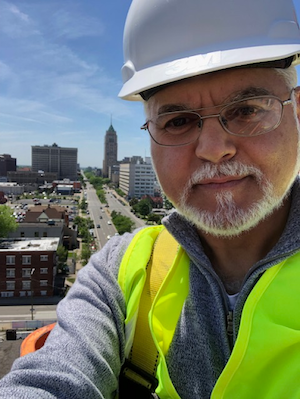 Finally! Mentally ill torture survivor imprisoned at Guantánamo since 2002 is sent homeLast week, Mohammed al-Qahtani, held at Guantánamo since 2002, arrived in Saudi Arabia, where he will receive psychiatric care for schizophrenia that was exacerbated by systematic torture by the U.S. government. Mr. al-Qahtani, who is in his forties, was diagnosed with schizophrenia long before he was rendered to Guantánamo where he was tortured and held for 20 years. Although U.S. government officials knew he suffered from mental illness, they subjected him to a program of physical, sexual, and psychological abuse. “Mohammed has always belonged in the care of psychiatrists, not in a prison. He survived being tortured and detained at Guantánamo through enormous personal courage, and we are very hopeful that with proper treatment with his family nearby, he will learn to manage his symptoms and salvage the remainder of his life,” said Senior Managing Attorney Shayana Kadidal. To learn more about Mr. al-Qahtani, visit his client profile on our website. While you’re there, read our press release on his release. For more, read the New York Times story here. Artwork by Shereen Masoud-Jointe | ||
 Majid Khan’s final sentence approvedOn Friday, the Convening Authority for Military Commissions approved a final sentence of 10 years for Majid Khan. Applying credit for time served from the date of his guilty plea on February 29, 2012, Mr. Khan's sentence ended on March 1, 2022. His legal team responded:
Mr. Khan is represented by the Center for Constitutional Rights, Jenner & Block LLP, and the Military Commissions Defense Organization. Learn more on our website. | ||
 D.C. Circuit Court of Appeals rejects our appeal in over decade-old case Aref v. GarlandAfter more than a decade of litigation, our challenge to the federal Bureau of Prisons’ Communications Management Units, filed March 29, 2010, has come to an end. At the end of February, the D.C. Circuit Court of Appeals dismissed our case as moot. People held in CMUs live, work, and participate in programs separately from all other people imprisoned by the BOP, and their communication with the outside world is severely limited and strictly monitored, as compared to the communication of those held in non-CMU facilities. Because of how long many prisoners are subjected to these strict conditions in CMUs and because of how unusual CMU placement is—only a small fraction of those deemed by the BOP to be eligible for CMU placement are ever actually housed there—the appellate court previously held that prisoners have a liberty interest in avoiding placement in a CMU, thereby requiring constitutionally adequate procedures for placement and review. “My five children grew up while I was in the CMU. Not being able to talk with them regularly, or hug them and my wife, siblings, and parents during the five years I was in a CMU was a torture I will never recover from,” said plaintiff Kifah Jayyousi. We had argued that Kifah Jayyousi's due process claim regarding placement and retention in the CMU was still live, despite his release from prison, because he sought expungement of the erroneous and prejudicial material about him created through CMU procedures. The court found it unduly speculative that this material might affect Kifah in the future. Because it found the case moot, the court did not rule on the substance of our procedural due process claim. There is some good news though: ever since we began litigating the case, the BOP has used CMU placement more narrowly and improved procedures to some degree. We are also pleased that the extremely troubling District Court decision we appealed from—holding that CMU procedures satisfy due process—should now be vacated, clearing a path for people currently held in the CMU to challenge their placement should they wish to do so. Read the Court of Appeals’ decision on our website. | ||
Join us for “Holding Israel Accountable: Remembering Rachel Corrie”Join the Rachel Corrie Foundation for Peace and Justice and Madison-Rafah Sister City Project for Holding Israel Accountable, a commemorative webinar marking the 19th anniversary of Rachel Corrie’s stand in Gaza. How do we hold Israel accountable for decades of oppression, displacement, land theft, occupation, and loss? At this moment, what are the avenues for seeking peace with justice for Palestinians and Israelis? Five guests, representing many years of experience with this issue, will share their work and current perspectives. Panelists:
Moderated by Phyllis Bennis, Director of the New Internationalism Project at the Institute for Policy Studies, and a Fellow of the Transnational Institute in Amsterdam. Head to our website for more information and to register. |
March 14, 2022

